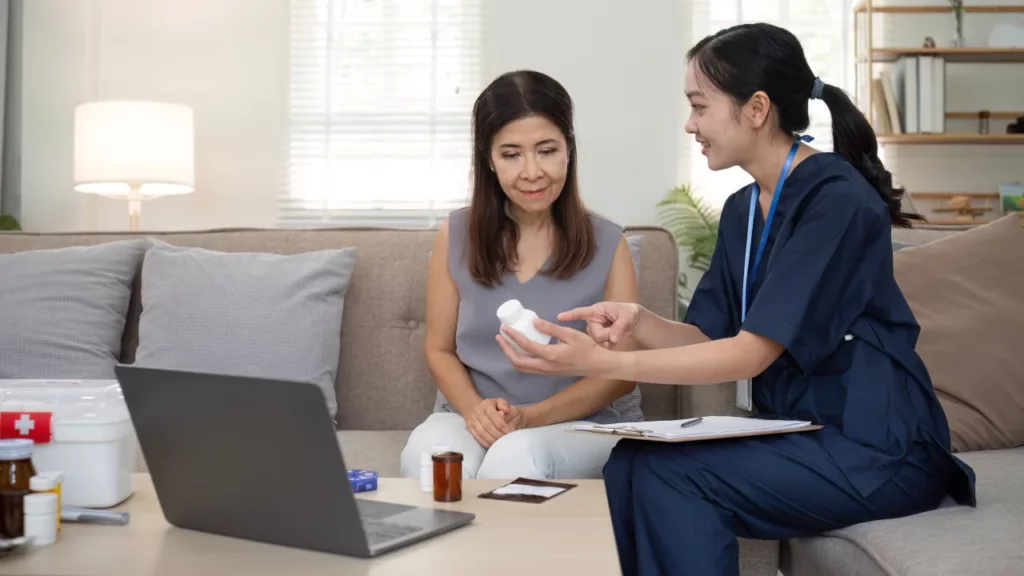Remote Patient Monitoring (RPM) is increasingly recognized as a game-changer in managing chronic conditions, enabling continuous monitoring and more personalized care. As reported in The Permanente Journal (Serrano et al., 2023) and the Journal of General Internal Medicine (Hailu et al., 2024), RPM offers significant benefits but also presents various challenges that must be navigated for effective implementation.
This article explores these challenges and provides solutions to help healthcare providers overcome obstacles in implementing RPM, ultimately improving patient care for chronic conditions.
The Promise of Remote Patient Monitoring in Chronic Care
RPM provides healthcare practitioners with real-time data on patients’ health, allowing for timely interventions that can significantly improve outcomes, particularly in managing chronic diseases like heart failure, diabetes, and chronic obstructive pulmonary disease (COPD). Studies have shown that RPM can lead to early detection of health issues and reduce hospital readmissions, making it a valuable tool in chronic care (Serrano et al., 2023; Hailu et al., 2024).
However, the journey to fully integrating RPM into chronic care management is fraught with challenges that need careful consideration and strategic solutions.
Key Challenges in Implementing RPM
Increased Workload for Healthcare Providers
According to research in The Permanente Journal (Serrano et al., 2023), one of the most significant challenges of RPM is the additional workload it creates for healthcare providers. RPM systems generate a constant stream of patient data that needs to be monitored and analyzed, which can be overwhelming, especially in already busy clinical settings. This increased workload can lead to burnout if not managed properly.
Data Accuracy and Integration Issues
Another critical challenge identified in studies published in the Journal of General Internal Medicine (Hailu et al., 2024) is ensuring the accuracy of data collected through RPM devices. The lack of standardization across different devices can lead to data integration issues with existing Electronic Health Record (EHR) systems. These integration challenges can hinder the effectiveness of RPM, making it difficult for healthcare providers to rely on the data for critical decision-making.
Patient Engagement and Compliance
Patient engagement is crucial for the success of RPM programs. However, studies highlight the difficulties in ensuring patient compliance, particularly among older adults who may struggle with digital literacy. Without proper engagement, the data collected through RPM may be incomplete or inaccurate, reducing the program’s overall effectiveness.
Financial and Reimbursement Challenges
Financial barriers also play a significant role in the adoption of RPM. While reimbursement is available through Medicare and some private insurers, the process can be cumbersome and may not fully cover the costs associated with implementing and maintaining RPM programs (Hailu et al., 2024). This financial uncertainty can deter healthcare providers from adopting RPM, particularly in smaller practices that operate on tighter budgets.
Privacy and Security Concerns
Privacy and security are paramount in any healthcare setting, and RPM is no exception. The increased use of technology in patient monitoring raises concerns about data breaches and unauthorized access to sensitive health information. Studies underscore the importance of implementing robust security measures to protect patient data, which can add another layer of complexity to RPM implementation.
Solutions to Overcome These Challenges
While the challenges of implementing RPM are significant, they are not insurmountable. Various strategies can help mitigate these obstacles:
Streamlining Data Management
To alleviate the increased workload, healthcare providers can leverage artificial intelligence (AI) and machine learning tools to automate data analysis and alerts. This approach can help clinicians manage the data more efficiently, allowing them to focus on the most critical cases. Additionally, support staff can be trained to handle routine data management tasks, reducing the burden on physicians (Hailu et al., 2024).
Enhancing Data Integration and Standardization
The idea of developing standardized protocols for data collection and ensuring seamless integration with Electronic Health Record (EHR) systems, as well as the importance of collaboration between healthcare providers, technology developers, and policymakers, is mentioned in the systematic review by Abdolkhani et al. (2019) published in JAMIA Open.
The study highlights the challenges in managing patient-generated health data in remote patient monitoring systems, emphasizing the need for standardized data protocols and interoperability to enhance the accuracy and reliability of the data collected through RPM technologies. The collaboration across sectors is seen as critical to overcoming these challenges and making RPM more effective.
Improving Patient Education and Support
Educating patients on the use of RPM devices is vital for improving engagement and compliance. As highlighted in a study published in the Journal of Asthma (Hollenbach et al., 2017), providing user-friendly devices and offering comprehensive technical support can significantly enhance patient comfort and willingness to use the technology.
The study underscores the importance of regular follow-ups and continuous encouragement from healthcare providers, which play a crucial role in ensuring that patients consistently participate in the monitoring process. This, in turn, leads to more accurate and complete data collection, which is essential for effective chronic disease management.
Advocating for Better Reimbursement Policies
Advocacy for more comprehensive reimbursement policies is necessary to make RPM financially viable for healthcare providers. This includes pushing for policies that recognize the long-term cost savings and health benefits of RPM, encouraging broader adoption across different healthcare settings (Hailu et al., 2024).
Ensuring Robust Privacy and Security Measures
Implementing strong encryption protocols and conducting regular security audits can address privacy and security concerns. Educating both patients and providers on the importance of data security and selecting RPM platforms that comply with regulations like HIPAA can provide additional layers of protection (Serrano et al., 2023).
DrKumo’s Role in Advancing Remote Patient Monitoring
DrKumo is a pioneer in transforming chronic care management through its innovative RPM solutions. By focusing on user-friendly technology and robust technical support, DrKumo ensures that patients are fully engaged and comfortable using RPM devices. This approach not only enhances patient participation but also ensures the collection of accurate and complete data, which is vital for effective chronic disease management.
DrKumo’s platform also emphasizes seamless integration with Electronic Health Record (EHR) systems, facilitating better collaboration between healthcare providers and enabling more personalized, data-driven care. By addressing key challenges in RPM implementation, such as device usability and data interoperability, DrKumo is setting new standards in the healthcare industry, ultimately improving patient outcomes and making RPM more accessible and effective for chronic care management.
Through its commitment to innovation and patient-centered care, DrKumo is leading the way in the adoption and effectiveness of RPM technologies, helping to shape the future of chronic disease management.
Takeaways
RPM has the potential to revolutionize chronic care management by offering continuous, personalized care and improving patient outcomes. However, its implementation comes with several challenges that must be addressed through strategic planning and collaboration among healthcare providers, technology developers, and policymakers.
By focusing on streamlining data management, improving patient engagement, advocating for better reimbursement policies, and ensuring robust data security, healthcare providers can overcome these challenges and fully realize the benefits of RPM in chronic care.
Discover how DrKumo is revolutionizing chronic care management with cutting-edge Remote Patient Monitoring solutions. Explore the benefits of our platform and learn how we can enhance patient outcomes and streamline your healthcare practices today. Contact us to learn more about implementing our advanced RPM solutions in your healthcare facility.
Disclaimer: The studies and research cited in this blog are from external sources; DrKumo does not conduct these studies. We provide insights based on the cited literature to inform and guide the implementation of Remote Patient Monitoring systems. For more detailed information, please refer to the original sources.









